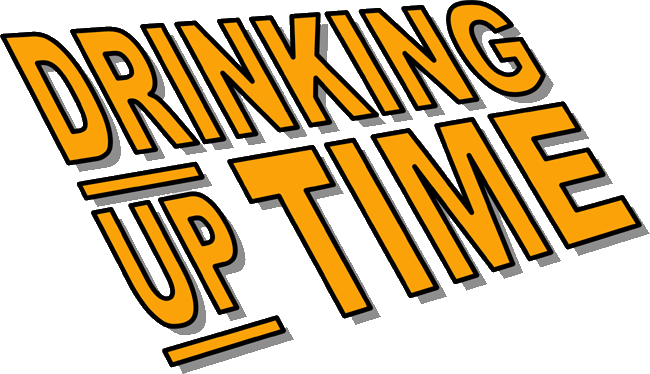Notes on the project
Drinking Up Time is a talk/performance designed by a professional historian of science for presentation in pub venues. It addresses what’s often thought of as a difficult, abstract question – how scientific understanding, and the status of scientific ideas, have changed over the past three centuries – in terms of a subject which pub-goers tend to have no difficulty with: drink.
Anyone hoping for an authoritative speaker presentation will be disappointed. The presenter of this event appears to be drunk, mad or both, and offers an increasingly unreliable narrative suggesting that he has researched various historical episodes at first hand. His tales of discussions on the chemistry and physics of alcohol with alchemists, natural philosophers and early scientific analysts mostly end in shouting, confusion, and, in one regrettable case involving Sir Isaac Newton, a punch-up.
This is actually a serious response to a current question among historians of science who regularly work with public audiences. The details of “real history” are often messy, but attempts to simplify them (by stringing together events that happened years apart, setting up historical characters as heroes or villains, etc) often leave audiences confused as to what is “real” and what isn’t.
Drinking Up Time is an experiment in solving this problem: instead of the conventional authoritative lecturer, we have an obviously unreliable narrator whose inventions (government cutbacks have forced reliance on time-travel; time machines are powered by a Hungarian herbal liqueur) are so obviously false that anyone could spot them. Fortunately, the traveller's time-machine has views of its own on all this, and does not mind stepping in to rescue the performance’s academic respectability.
A key goal in most history of science is to avoid thinking of the past as a defective version of the present: scientists in the eighteenth and nineteenth centuries thought differently because they had different opportunities, or were responding to different aims and needs. This point becomes clear as the historical characters question the twenty-first-century researcher’s ideas about alcohol, and find that he can’t explain them in terms they find convincing. The characters the time-traveller recalls “meeting” are all people whose work I have examined during research for my perfectly serious and sober academic book project on the development of scientific interest in beer-brewing.
Drinking Up Time uses these cases as a focus to encourage audiences to explore wider issues in the history of science and technology: credibility, belief, and opportunities for testing theories (why should we believe in the atomic structure if we can’t see the atoms?); the growth of analytical methods in the nineteenth century; and the relationship between professional science and the wider public, including non-‘scientist’ experts.
That, at least, is how we describe the project in funding applications. The publicity material tends to present it more as a lot of shouting about fish and beer. Both are accuate.
The event follows on from more conventional lectures on alcohol history which I've given in recent years in the upstairs function rooms of pubs (usually, and not by coincidence, pubs offering a good range of cask-conditioned beers). This arrangement attracts a mixed crowd who might not be attracted to more formal settings, often including curious drinkers who hadn’t initially planned to attend.
